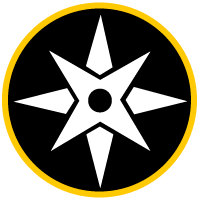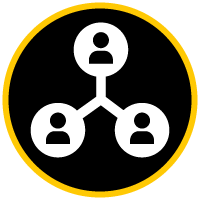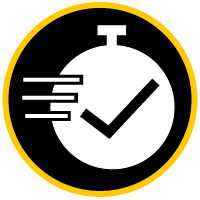
Actively Engage in Undergraduate Research and/or Experiential Learning
Purpose: Scholars will learn about the importance of research in graduate school and how they can start conducting research during their undergraduate career.

Engaging in Undergraduate Research
If you have been thinking about graduate school, chances are you have already heard mention of the word research. Perhaps this is the first time you are thinking about conducting research or you are an experienced researcher seeking a new project or lab. Here we will breakdown what research means and why it is important in graduate school. This is followed by a conversation on how you can start building your career in research as an undergraduate student at UCF.
Undergraduate Research Opportunities
Click the arrows at the bottom right-hand corner of the slides to advance and listen to the opportunities available in Undergraduate Research.

The Importance of Experiential Learning
Depending on your discipline or the programs you are interested in applying, Experiential Learning is most valuable to prepare for graduate school, not Undergraduate Research. If you’re not sure which is valued more highly in graduate programs you’re interested in, ask a mentor, faculty, or schedule a Pre-Grad Advising appointment with AAP Peer Advisors.
Engaging with Experiential Learning
Click the arrows at the bottom right-hand corner of the slides to advance, listen, and watch the EL staff describe the opportunities available through Experiential Learning.
Connecting with Experiential Learning
Check out UCF’s Experiential Learning website below to learn more about the different types of Experiential Learning opportunities and how to get started at UCF.

Benefits of being Active in Research
For some their research experience is best described as a continuous cycle of washing flasks and preparing agar. Yes, these are contributions to research, but they are passive experiences. You want to have an active, engaging, research experience. Let the world know that you are more than manual labor. Show them that you can problem solve and think critically about your field to address pressing questions and issues. Make your mark!

Create an independent research project
The quest for answers may lead you to more questions. While conducting a literature review or working on an existing project you may find that there is angle that remains to be explored! This is your opportunity to contribute to the field and cement your legacy. With time you may feel confident to design your own research project from scratch- the questions, methodologies and beyond.
Many departments at UCF offer students the opportunity to receive course credit for independent research. The Directed Independent Research (4912) course can be taken for zero credit or for up to three credits. It will show up on your transcript like any other course. For more information click here.


Publish Your Research
Talk to your research advisor and let them know you want to be a published author. Perhaps you can co-author research findings you helped develop. Maybe you can publish a project you designed.

Present Your Findings
Take your research beyond the walls of your department. Conferences are a great way to advertise your research, get invaluable feedback and meet scholars in your field.

Write a Grant
Consult with your research advisors and faculty mentors. There may be funding opportunities for your research. Remember supplies and your time are not cheap!

Actively Engaging in High Impact Practices
This video is an undergraduate student presenting their research at a UCF poster presentation, a high-impact practice available to all students at UCF.
Julissa Burgos, a Biomedical Sciences major, explains why actively participating in research, like presenting a research poster, helps her prepare for graduate school.

Structured Ways to Engage Actively in High Impact Practices
Academic Advancement Programs, the Burnett Honors College, the Office of Undergraduate Research, and Experiential Learning offer scholars various ways to become involved in opportunities that can make you a competitive applicant for graduate school..
- RAMP – AAP’s programs Research and Mentoring Program (RAMP) and McNair Scholars have application deadlines in the fall.
- SURF – OUR offers summer research opportunities like Summer Undergraduate Research Fellowship (SURF).
- HUT – Burnett Honors College offers Honors Undergraduate Thesis (HUT, formerly HIM).
- Knights of Distinction – Experiential Learning offers this program that encourages undergraduate students to pursue their goals.

Important Resources
- Academic Advancement Programs
- Ronald E. McNair Scholars Program at UCF
- Research and Mentoring Program (RAMP)
- Research and Mentoring Program Transfer (RAMP-T)
- Office of Undergraduate Research (OUR)
- Summer Undergraduate Research Fellowship (SURF)
- Burnett Honors College
- Honors in the Major
- Burnett Research Scholars

Suggested Assignment
Assignment #17
Create S.M.A.R.T. Academic Goals
Purpose: Scholars will identify active opportunities they are interested in pursing and will discuss new academic goals with mentors or network. For assistance schedule a visit with AAP Peer Advisors.
Download Assignment: Create S.M.A.R.T. Academic Goals
Instructions: Complete the charts in the assignment to form specific, measurable, attainable, relevant and time-bound goals.
Save Your Work: Complete the assignment by typing in the boxes in the PDF below and downloading the document for your records.
Instructions for navigation
Prepare for graduate school now by marking this topic complete: click the “Mark Complete” button below in the bottom left hand corner to keep track of the topics you’ve completed. Then, click the “Next Topic” button below in the bottom right hand corner to move onto the next topic within the lesson.
If you are following the application elements curriculum, follow the Quick Learn icon to the right to the next topic in Resume/CV.
Note: For a refresher, consult the topic Build Your Network through Conferences and Professional Organizations
